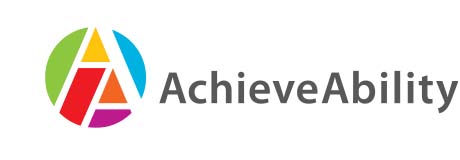Advances in Autism Emerald Publishing
Autistic Voices from the Workplace
Published by Emerald
Autistic Voices from the Workplace [PDF] 2020
Abstract
This research paper drills down into the experience of neurodivergent and autistic employees in
particular. The paper draws on a questionnaire with over 600 responses including 96 autistic people.
Most neurodivergent employees were found to identify with two or more neurodivergent categories,
and there is little difference, of statistical significance, between the experiences of all neurodivergent
employees. This paper reports some of those differences, but the similarities of experience is striking.
The workplace is experienced as a hostile environment, which is challenging at all stages of selection,
being in the workplace, and dealing with colleagues. The Catch 22 of disclosure is also explored;
employees remain unprotected by the law if they do not disclose, but frequently subject to
discrimination when they do. Only 1% of autistic employees usually found that their manager
understood their neurodivergence, but when they did, like all neurodivergent employees, usually
excelled. The sample of autistic employees is relatively small (n=96) and more engaged with
employment than is typical. Recommendations from the WAC Report with particular relevance for
autistic employees are identified. These include neurodiversity awareness training, the need for a
major cultural shift inside the DWP and JobCentre Plus so that they operate within a social model of
disability, the end of counter-productive and punitive sanctions, better monitoring and evaluation of
Access to Work and Disability Confident schemes, better ‘reasonable adjustments’, and the end of the
misuse of psychometric tests during selection. The paper offers new insights into the experiences of
autistic employees.
Introduction
AchieveAbility sent a questionnaire to hundreds of neurodivergent people through all our
communication channels during 2018 as part of our Westminster Commission. The purpose of the
questionnaire was to explore neurodivergent experiences of employment, including those who are
autistic. We were aided in this endeavour, in particular by Craig Kennady, who is an active member of
both the Westminster Autism Commission and AchieveAbility’s. Over 600 people responded to the
questionnaire, including 96 respondents who declared they were autistic. Perhaps the most striking
feature of the responses was the overlap between all forms of neurodivergence. In this paper, the
intention is to drill down into the published report, “Neurodiverse Voices; Opening Doors to
Employment” (Cooper, R. et al, 2019), with particular reference to autistic employees. However, it
should be recognised that there was almost no statistically significant variation in responses to the
questions asked, no matter the nature of the neurodivergence. This could be partially explained by
the overlaps.
This paper will therefore consider
1. the nature of the overlaps in neurodivergence for our sample of autistic respondents
2. common experiences in the workplace
3. the catch 22 of disclosure
4. some key recommendations for enabling access to autistic employees
Dr Ross Cooper and Craig Kennady
Published by Emerald
Autistic Voices from the Workplace [PDF] 2020
Abstract
This research paper drills down into the experience of neurodivergent and autistic employees in
particular. The paper draws on a questionnaire with over 600 responses including 96 autistic people.
Most neurodivergent employees were found to identify with two or more neurodivergent categories,
and there is little difference, of statistical significance, between the experiences of all neurodivergent
employees. This paper reports some of those differences, but the similarities of experience is striking.
The workplace is experienced as a hostile environment, which is challenging at all stages of selection,
being in the workplace, and dealing with colleagues. The Catch 22 of disclosure is also explored;
employees remain unprotected by the law if they do not disclose, but frequently subject to
discrimination when they do. Only 1% of autistic employees usually found that their manager
understood their neurodivergence, but when they did, like all neurodivergent employees, usually
excelled. The sample of autistic employees is relatively small (n=96) and more engaged with
employment than is typical. Recommendations from the WAC Report with particular relevance for
autistic employees are identified. These include neurodiversity awareness training, the need for a
major cultural shift inside the DWP and JobCentre Plus so that they operate within a social model of
disability, the end of counter-productive and punitive sanctions, better monitoring and evaluation of
Access to Work and Disability Confident schemes, better ‘reasonable adjustments’, and the end of the
misuse of psychometric tests during selection. The paper offers new insights into the experiences of
autistic employees.
Introduction
AchieveAbility sent a questionnaire to hundreds of neurodivergent people through all our
communication channels during 2018 as part of our Westminster Commission. The purpose of the
questionnaire was to explore neurodivergent experiences of employment, including those who are
autistic. We were aided in this endeavour, in particular by Craig Kennady, who is an active member of
both the Westminster Autism Commission and AchieveAbility’s. Over 600 people responded to the
questionnaire, including 96 respondents who declared they were autistic. Perhaps the most striking
feature of the responses was the overlap between all forms of neurodivergence. In this paper, the
intention is to drill down into the published report, “Neurodiverse Voices; Opening Doors to
Employment” (Cooper, R. et al, 2019), with particular reference to autistic employees. However, it
should be recognised that there was almost no statistically significant variation in responses to the
questions asked, no matter the nature of the neurodivergence. This could be partially explained by
the overlaps.
This paper will therefore consider
1. the nature of the overlaps in neurodivergence for our sample of autistic respondents
2. common experiences in the workplace
3. the catch 22 of disclosure
4. some key recommendations for enabling access to autistic employees
Dr Ross Cooper and Craig Kennady
